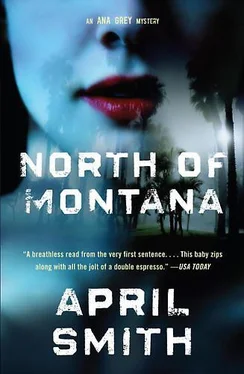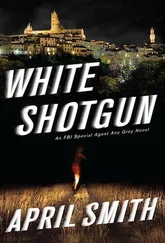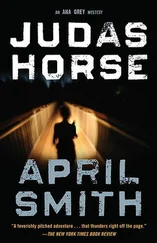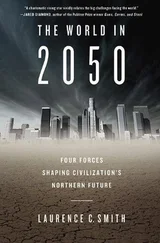From the vantage point of my desk I make the observation that everyone’s got their own problems. Each agent out there is working forty cases and in my wire basket alone there are two dozen unfinished reports on armed bank robberies. But at this moment the only response I can muster to all this savagery is to sit here patiently linking one paper clip to another.
When Henry Caravetti rolls by in the electric wheelchair delivering mail, my interest peaks but not for long. It will take weeks to process the transfer to the C-1 squad, and I will probably spend the entire time planted right here, trying to work up the nerve to talk to Mike Donnato. We have been avoiding each other for days.
It’s going to be a very long paper clip chain.
The problem is … well, they don’t have a word for it for females, but I’ve heard male colleagues refer to the condition as “continuous tumescence.” It’s a localized sensation down there that flares into acute, unbearable craving whenever I catch a glimpse of, say, the small of his back and think about slipping my hands inside the belt and slowly pulling out the tails of the sweet-smelling denim shirt, feeling the warm skin, drawing my fingertips down the spine to that place where it tapers, just above the hard curve of the buttock. I’d better get up and walk.
The Bank Dick’s Undercover Disguise gives a friendly nudge. Donnato is across the room with Kyle and Frank, wearing that denim shirt, a forest green knit tie, and jeans, standing in what strikes me as a very provocative pose, hands clasped behind his head, stretching the chest and armpits open, open, open. Stumbling forward I tell myself it is perfectly reasonable to join the talk, which is almost certainly about the coming matchup in the All-Star Game, getting myself psyched by rehearsing a line I read in the sports page about San Francisco’s manager, Roger Craig, and the A’s manager, Tony La Russa, who is a vegetarian.
Halfway there, SAC Robert Galloway prevents this potentially sweaty encounter by intercepting and escorting me into his office. I figure I might as well use the line on him:
“You think Roger Craig will pound La Russa into a veggie burger?”
“I’ll always have a sweet spot for Roger Craig,” Galloway says. “He pitched the first game ever played by the Mets and had the distinction of finishing the season with ten wins and twenty-four losses.”
Galloway picks up the NYPD detective belt buckle from the coffee table and hefts it in his hand, saying nothing.
I stand self-consciously in the middle of the room.
“Did Jayne mail that back to you?”
“I asked a captain back in New York to send a new one. Made me jumpy without it.”
“Great, because now you’re the picture of calm.”
Galloway’s fingers run uncertainly through his wavy black hair. Obviously something’s up.
“I want you to go back and talk to the widow.”
“Randall Eberhardt’s widow?”
“I want you to convey the sympathy of the Bureau concerning her loss.”
I want to throw a fit right there on the gold carpet.
“What am I supposed to say?”
“That we know her husband was innocent and we’re going to find the real bastards.”
He lowers the blinds against the morning glare.
“I’m lousy at diplomacy.”
“Just go see her, woman to woman. Keep it low-key.”
“Why do I have to do this?”
“Because it’s good for the image of the Bureau … and because it happens to be the right thing.”
He sits in the executive chair and studies the closed blinds. This is his way of taking responsibility for the grotesque raid on the medical office that may or may not have contributed to Randall Eberhardt taking his own life. Suicide is a mystery, we will never know; although I am deeply touched and admire Galloway’s humanity, I wish like hell he would write his own damn condolence card.
• • •
I wait until dark, in order to make the visit seem after hours, “low-key.” Boy do I not want to do this. The idea of offering sympathy to a woman who first cheats on her husband, then blackballs an innocent housekeeper for finding out, is absolutely loathsome. I plan to deliver the words and leave. Heading down San Vicente, I am pricked by just the slightest compulsion to drive by Poppy’s old place on Twelfth Street one last time, and I give in to the feeling completely, relishing the luxury of even the briefest detour.
But when I pull up to the house it is very strange: the lights are on and someone is walking back and forth inside.
I park at the curb and walk up the concrete path past the beech tree to the entryway, where I pause to fit my hand into the curve of the door handle, testing the sense memory, resting my thumb on the old latch which has been worn to a green patina. Reading Lock, it says. The round doorbell crusted over with brown paint doesn’t work but the door is unlocked.
I step inside to a small square room with oak flooring and a cast-iron register for gas heat. Immediately a rosy-cheeked lady wearing a blue blazer, with white hair in a long swinging braid, emerges from the kitchen extending her hand.
“Hi, I’m Dina Madison, Pacific Coast Realty, how are you tonight? Wonderful starter house, don’t you think?”
“It was a starter house. I grew up in it.”
“You’re kidding. If you’re considering it for sentimental value, grab it quick. I just showed the property to two Korean gentlemen who want to buy the place next door and tear them both down and build two smart houses.”
‘What’s a smart house?”
“Usually about five thousand square feet, five or six bedrooms, master suite, fireplaces, all the amenities. No backyard, but, that’s what you sacrifice.”
“I’ve seen them.” The Eberhardt house is one.
“I have mixed feelings myself,” she agrees, reacting to my tone. “I’ve heard them called anti-architecture. They’re too big for the lot and can be ugly as sin, but they sell in the millions of dollars, um-hum. People are always looking for new.”
The previous owners left an artificial tree.
“So you grew up here. I’ve been selling Santa Monica real estate probably since you were born. When I started in 1961, no new houses had been built north of Montana for ten years. People would leave their tiny California bungalows on small lots and buy a ranch house in the Pacific Palisades. They were looking for new. Montana was a funky little street, um-hum. You had the Kingsberry Market and Sully’s gas station. We used to have a lot of gas stations, as far as that’s concerned.”
“I’d like to see the backyard.”
I walk past her through a kitchen made of maple cabinets. I can’t bear to stop, to think of what happened here and what did not. A tiny Sony Watchman television plays on a chipped white tile counter.
“I take that with me everywhere,” she explains. “You spend so much time sitting in empty houses.”
She follows me to the back door, still talking.
“Do you remember the Chevron station on the northwest corner of Seventh and Montana? Then there was the Flying A station and of course then you had the Union 76 station at Eleventh. There was the Arco station at Fourteenth and you had another Mobil station up there …”
I let the screen door bang shut in the face of this eulogy over the lost gas stations of Santa Monica and walk down the steps into the backyard. A single floodlight mounted on a tall pole illuminates the faded polka dots of an umbrella set in a hole in the middle of a round table. I pull up a rickety metal chair and listen to the sound of the ocean breeze in the leaves and a child next door saying, “Ahh-ahh-ahh.”
My eye follows a ladder going up to the green shingled roof, where a rusty old TV antenna shows against the sky, undoubtedly the same one that used to bring me The Dick Van Dyke Show . A car passes in the alley and I notice there is a double fence, chain link leaning against a taller one made of wood. Maybe it was cheaper to put up the chain link to support the original rather than tear it down and build an entirely new structure, tight, with no space between the redwood planks, no chance of light strobing through as it used to do at night when we lived here. The clarity of the memory startles me. Did I spend a lot of time in the backyard at night?
Читать дальше












